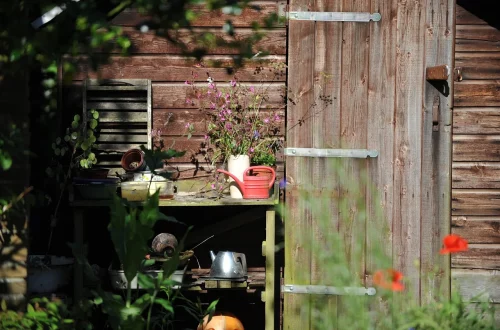
Discover the Allure: Why We Love the Perfume Experience
The world of fragrance is one filled with mystery, allure, and emotion. Perfumes have transcended their primary function of masking odors, becoming an essential part of personal expression and identity. From the rich history of ancient civilizations using aromatic oils to the modern perfumer’s art, scent has always held a special place in human culture. The moment a fragrance touches the skin, it has the power to evoke memories, set moods, and even influence perceptions.
The olfactory sense is unique; it is closely linked to the brain’s limbic system, which governs emotions and memories. This connection makes a scent not just a simple combination of notes but a profound experience that can transport us to another time or place. Whether it’s the comforting aroma of vanilla that recalls childhood memories or the invigorating scent of citrus that energizes, perfumes tell stories and create lasting impressions.
As we explore the enchanting world of perfumes, we delve into why they captivate our senses and how they play an integral role in our daily lives. The journey through fragrance is not merely about the scent itself, but also about the emotions it stirs and the connections it fosters among people.
The Emotional Impact of Fragrance
Fragrance has a remarkable ability to evoke emotions. When we encounter a particular scent, it can trigger memories and feelings that might have been long forgotten. This phenomenon is rooted in how our brains process smells. The olfactory bulb, responsible for our sense of smell, is directly connected to the limbic system, the part of the brain that controls emotions and memory.
For instance, the scent of fresh-baked cookies may remind someone of their grandmother’s kitchen, flooding them with warmth and nostalgia. Similarly, a whiff of a specific perfume might transport someone back to their first romantic encounter. Such powerful associations make fragrance a potent emotional tool, influencing our moods and interactions.
Moreover, studies have shown that certain scents can alter our emotional states. Aromatherapy, for example, utilizes essential oils to promote relaxation and reduce anxiety. Lavender is often used for its calming effects, while citrus scents can uplift and energize. This duality of fragrance as both a personal marker and an emotional enhancer underscores its significance in our lives.
In social settings, the fragrance we wear can also influence how we are perceived by others. A pleasant scent can enhance attractiveness and leave a lasting impression, while an unpleasant one might do the opposite. This social dimension of fragrance adds another layer to its allure, as individuals often choose scents that reflect their personality or mood, further enhancing their self-expression.
The Art and Science of Perfumery
Perfume creation is a delicate balance between art and science. Perfumers, often referred to as “noses,” possess an extraordinary ability to blend various fragrance notes to create a harmonious scent. This process involves a deep understanding of the components of fragrance — top, middle, and base notes — and how they interact over time.
Top notes are the first impression of a fragrance, often fresh and light, such as citrus or herbal scents. They quickly evaporate and pave the way for the heart of the fragrance, which comprises the middle notes. These are the core of the scent, providing balance and depth. Finally, the base notes emerge, grounding the fragrance with lasting elements like wood, musk, or amber.
The choice of raw materials is crucial in perfumery. Natural ingredients, such as essential oils from flowers, fruits, and spices, are often preferred for their complexity and richness. However, synthetic compounds also play a vital role, allowing for the creation of scents that may not exist in nature. The blending process requires not only technical skill but also a creative vision, as each fragrance tells a unique story.
The world of fragrances is constantly evolving, with trends shifting toward more sustainable and natural options. As consumers become more aware of the environmental impact of their purchases, perfumers are exploring innovative ways to create scents that are both beautiful and eco-friendly. This ongoing evolution highlights the dynamic nature of the fragrance industry, where tradition meets modernity.
Cultural Significance of Perfume
Perfume holds a significant place in various cultures around the world. Historically, fragrances have been used in rituals, ceremonies, and daily life for centuries. Ancient Egyptians, for example, revered scent as a divine gift, using it in religious ceremonies and as part of their burial practices. The use of perfumes in religious rituals underscores the spiritual significance of fragrance across cultures.
In many societies, scent has been a symbol of status and wealth. During the Renaissance, for instance, perfumes became a luxury item for the elite, reflecting both sophistication and refinement. This association with status continues today, as high-end fragrances are often marketed as exclusive and luxurious, appealing to those who wish to convey a sense of elegance and opulence.
Moreover, different cultures have distinct fragrance preferences that reflect their history and environment. For example, Middle Eastern perfumes are often rich and complex, incorporating ingredients like oud and rose, while Western fragrances might favor lighter, fresher scents. Understanding these cultural nuances allows us to appreciate the diversity of fragrance and its role in shaping identity.
In modern society, perfume has become a universal language of self-expression. People use fragrance to communicate their personality, mood, or even aspirations. The rise of niche perfume brands has further democratized the industry, allowing individuals to explore unique scents that resonate with their personal stories. This cultural exchange of fragrances adds to the allure, making perfume a truly global phenomenon.
Choosing Your Signature Scent
Finding the perfect fragrance can be a delightful yet challenging journey. With countless options available, it’s essential to consider factors that can guide you in selecting a scent that truly resonates with you.
Firstly, think about the occasions for which you’ll be wearing the fragrance. A light, fresh scent may be ideal for daytime wear or casual outings, while a deeper, more complex fragrance might be better suited for evening events or special occasions. Understanding the context in which you plan to wear the scent can help narrow down your choices.
Another crucial factor is personal preference. Everyone has unique tastes when it comes to fragrance notes. Spend time exploring different scent families, such as floral, oriental, woody, or fresh. Visiting fragrance stores and trying out samples can provide insight into what appeals to you.
Additionally, consider your body chemistry. A fragrance may smell divine on a tester strip but can change when applied to your skin due to individual skin chemistry. It’s advisable to test scents on your skin and give them time to develop before making a decision. This allows you to experience the full evolution of the fragrance, from the initial application to the dry-down phase.
Lastly, remember that fragrance is a personal journey. Your signature scent should reflect who you are, evoke positive emotions, and enhance your overall presence. Embrace the exploration and enjoy discovering the myriad of scents that resonate with your identity.
In conclusion, the perfume experience is a captivating blend of emotion, art, science, and culture. It invites us to explore the depths of our senses and express ourselves in ways that transcend words. Whether it’s the memories a scent evokes or the feelings it ignites, the allure of perfume is a timeless journey worth exploring.
**Note:** This article is for informational purposes only and should not be considered medical advice. Always consult a healthcare professional for any health-related concerns.




